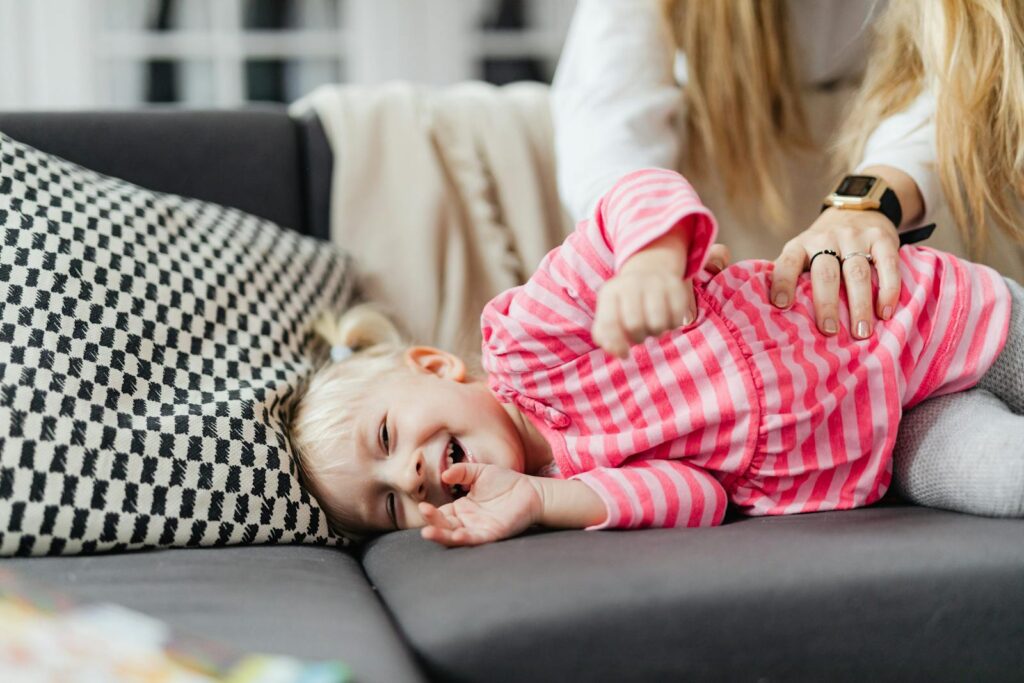A concerned mom recently turned to Reddit for advice on handling her seven-year-old daughter’s new “laugh.” The mom shared, “She sounds like Goofy and SpongeBob had a baby…she is suddenly ‘laughing’ at everything, including things that are not even funny.”
Frustrated and unsure how to approach it, she asked if there was a way to encourage her daughter’s genuine laugh without upsetting her.
One commenter shared a similar experience, recalling:
Embed from Getty Images“I went through a phase of laughing like Woody Woodpecker. Jeez, I was [annoying]. Thankfully, I’ve grown out of it.” They advised the mom to be gentle, suggesting she could ask her daughter why the new laugh started while mentioning she misses the old one.
Other commenters agreed that showing gentle curiosity could help.
Another person suggested a lighter approach:

“Adopt an even more obnoxious laugh because if you can’t beat them join them.” They explained this tactic could shift the mood, allowing the mom and daughter to share a laugh over their exaggerated sounds.
A few others leaned into lighthearted methods, with one suggesting:

“If you miss her real laugh, I think the only thing you can do is make her sincerely laugh as much as you can!”
They encouraged focusing on positive moments to bring out genuine laughter rather than directly addressing the fake one.
Yet, some warned that the phase might linger.

“Not necessarily true,” one commenter wrote, sharing how a college friend had developed a snort laugh as a joke, which became permanent.
“She hates it,” they added, urging caution in case this new laugh might stick around.
One empathetic response touched on the social dynamics kids sometimes face.

“When I was younger, I adopted a new laugh because kids were teasing me about my natural laugh,” one commenter recalled.
She suggested gently asking the daughter if something might have prompted her to laugh differently, cautioning that these changes can sometimes be defense mechanisms.
Several users believed patience was the best response.

“It’s a phase, and she will stop doing it soon,” one simple response read.
Many agreed, noting that kids often experiment with new sounds and quirks as part of growing up and that a phase often passes on its own.
One mom offered a sweet, loving tactic.

She explained how she would “wait for her natural laugh to emerge or tickle her into her natural laugh (which she loves) and then talk about how much I love to hear it.”
She gently shared how much her daughter’s real laugh meant to her, calling it “one of my favorite sounds.” This loving approach struck a chord with many as a gentle way to encourage her child’s real laughter.
Another commenter suggested focusing on patience mixed with humor.

She said showing genuine enjoyment for her real laugh without pressuring her to change could subtly help her shift back to her natural laugh over time.
They noted that laughter styles often change organically when kids feel comfortable.
In the end, the community advised this mom to use empathy, humor, and patience to gently guide her daughter back to her natural laugh.

By showing appreciation for her real laugh, this mom could encourage her child’s genuine laughter without hurting feelings, building an even stronger bond.


















































